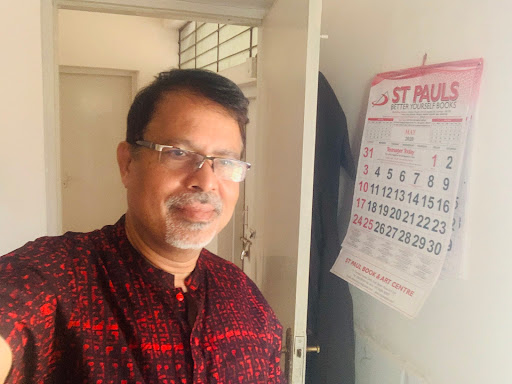All Souls’ Day is a day specially set apart that we may remember and pray for our dear ones who have gone to their eternal reward and who are currently in a state of ongoing purification.
Ancient belief
1) People of all religions have believed in the immortality of the soul, and have prayed for the dead.
1) People of all religions have believed in the immortality of the soul, and have prayed for the dead.
2) The Jews, for example, believed that there was a place of temporary bondage from which the souls of the dead would receive their final release. The Jewish catechism Talmud states that prayers for the dead will help to bring greater rewards and blessings to them. Prayer for the souls of the departed is retained by Orthodox Jews today, who recite a prayer known as the Mourner’s Kaddish for eleven months after the death of a loved one so that he/she may be purified.
3) Jesus and the apostles SHARED this belief and passed it on to the early Church. “Remember us who have gone before you, in your prayers,” is a petition often found inscribed on the walls of the Roman catacombs (Lumen Gentium-50).
this belief and passed it on to the early Church. “Remember us who have gone before you, in your prayers,” is a petition often found inscribed on the walls of the Roman catacombs (Lumen Gentium-50).
4) The liturgies of the Mass in various rites dating from the early centuries of the Church include “Prayers for the Dead.”
5) The early Fathers of the Church encouraged this practice. Tertullian (A.D. 160-240) wrote about the anniversary Masses for the dead, advising widows to pray for their husbands. St. Augustine remarked that he used to pray for his deceased mother, remembering her request: "When I die, bury me anywhere you like, but remember to pray for me at the altar" (St. Augustine of Hippo, Confessions, Book 9, Chapter 11, Section 27).
6) The synods of Nicaea, Florence and Trent encouraged the offering of prayers for the dead, citing Scriptural evidences to prove that there is a place or state of purification for those who die with venial sins on their souls.
7) Theological reason: According to Revelation: 21:27: “nothing unclean shall enter heaven.” Holy Scripture (Proverbs 24: 16) also teaches that even "the just sin seven times a day.” Since it would be contrary to the mercy of God to punish such souls with venial sins in Hell, they are seen as entering a place or state of purification, called Purgatory, which combines God’s justice with His mercy. This teaching is also contained in the doctrine of the Communion of Saints.
Biblical evidence
1) II Maccabees, 12:46 is the main Biblical text incorporating the Jewish belief in the necessity of prayer and sacrifice for the dead. The passage (II Maccabees 12: 39-46), describes how Judas, the military commander, “took up a collection from all his men, totaling about four pounds of silver and sent it to Jerusalem to provide for a sin offering” (II Macc. 12: 43). The narrator continues, "If he had not believed that the dead would be raised, it would have been foolish and useless to pray for them.”
1) II Maccabees, 12:46 is the main Biblical text incorporating the Jewish belief in the necessity of prayer and sacrifice for the dead. The passage (II Maccabees 12: 39-46), describes how Judas, the military commander, “took up a collection from all his men, totaling about four pounds of silver and sent it to Jerusalem to provide for a sin offering” (II Macc. 12: 43). The narrator continues, "If he had not believed that the dead would be raised, it would have been foolish and useless to pray for them.”
2) St. Paul seems to have SHARED this traditional Jewish belief. At the death of his supporter Onesiphorus, he prayed: “May the Lord grant him mercy on that Day” (II Timothy: 1:18). Other pertinent Bible texts: Matthew 12:32, I Corinthians, 3:15, Zechariah 13:19, Sirach 7:33.
this traditional Jewish belief. At the death of his supporter Onesiphorus, he prayed: “May the Lord grant him mercy on that Day” (II Timothy: 1:18). Other pertinent Bible texts: Matthew 12:32, I Corinthians, 3:15, Zechariah 13:19, Sirach 7:33.
The Church’s teaching: The Church's official teaching on Purgatory is plain and simple. There is a place or state of purification called Purgatory, where souls undergoing purification can be helped by the prayers of the faithful (Council of Trent). Some modern theologians suggest that the fire of Purgatory is an intense, transforming encounter with Jesus Christ and his fire of love. They also speak of Purgatory as an "instant” purification immediately after death, varying in intensity from soul to soul, depending on the state of each individual.
 How do we help the “holy souls”? The Catechism of the Catholic Church (CCC #1032) recommends prayer for the dead in conjunction with the offering of the Eucharistic Sacrifice. The CCC also encourages "almsgiving, indulgences, and works of penance undertaken on behalf of the dead." Let us not forget to pray for our dear departed, have Masses offered for them, visit their graves, and make daily sacrifices for them
How do we help the “holy souls”? The Catechism of the Catholic Church (CCC #1032) recommends prayer for the dead in conjunction with the offering of the Eucharistic Sacrifice. The CCC also encourages "almsgiving, indulgences, and works of penance undertaken on behalf of the dead." Let us not forget to pray for our dear departed, have Masses offered for them, visit their graves, and make daily sacrifices for them







No comments:
Post a Comment